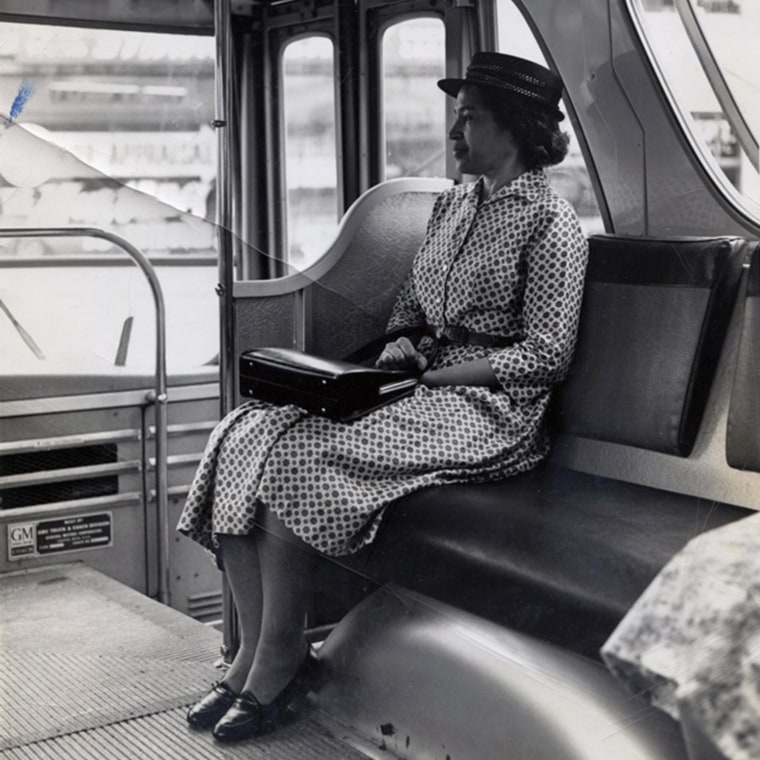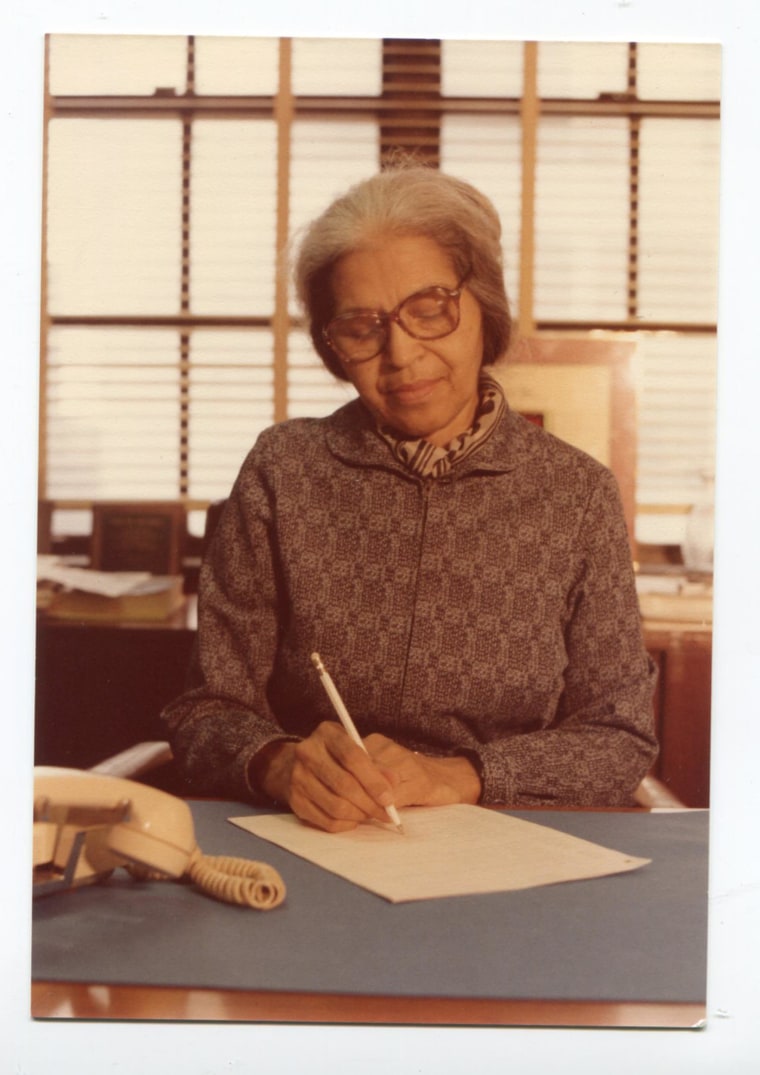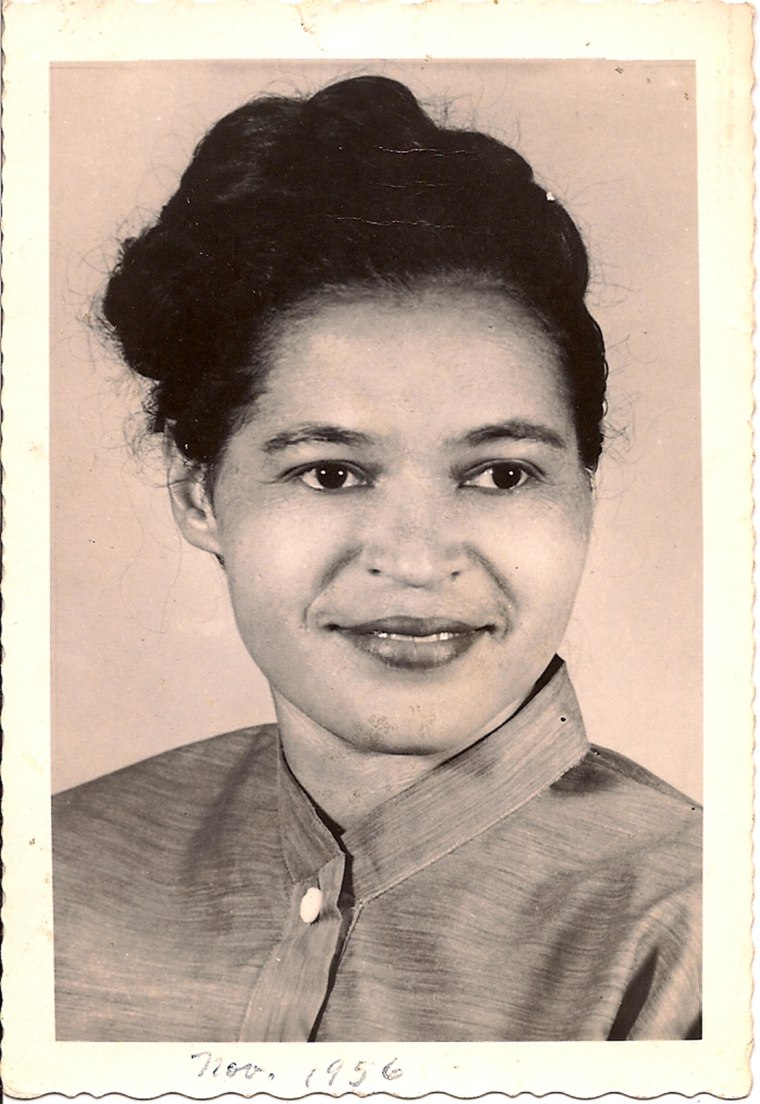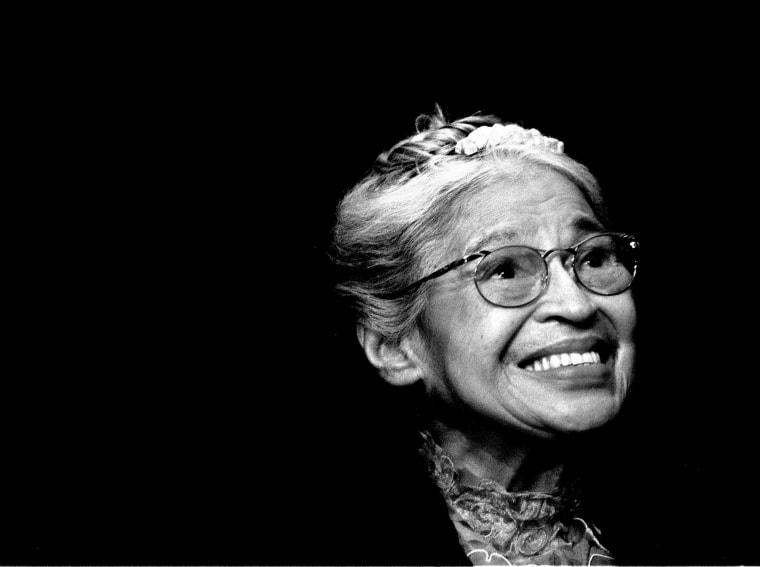
She didn’t know it at the time but December 1, 1955 would be the day that would put her name in history books. That was the day when Rosa Parks refused to give up her bus seat to a white passenger.
Her act of resistance that day unleashed a movement that helped to end legal segregation in the U.S., and cemented her as the “mother of the civil rights movement.” But Parks didn't become an activist that day. She already had a long history of fighting for justice, including being an active member of Montgomery, Alabama's NAACP chapter since 1943.
In honor of what would be her 104th birthday on Saturday, here's a look at some lesser known facts about Parks' life before she became a public figure.
Criminal Justice Warrior
Parks' commitment to social justice and the fight for equality reaches way beyond the bus. Her early political career focused on issues of interracial sexual violence. She helped raise money for the defense of the "Scottsboro Boys," nine Black teenagers falsely accused of raping two white women in 1931. All nine were later paroled, freed or posthumously pardoned after being wrongly convicted in a case that led to two landmark Supreme Court opinions over equality in the courtroom.
Women's Advocate

Parks got involved in fighting for women’s rights when the NAACP sent her to investigate the attack of Recy Taylor, a 24-year-old mother who was abducted at gunpoint and raped by a group of white men in Alabama in 1944.
Parks "took notes on Taylor's story and listened to her testimony and then took Taylor's testimony back to Montgomery, where she and the city's most militant activists launched a campaign that the Chicago defender called the strongest movement for justice to be seen in a decade," Prof. Danielle McGuire said in an interview with NPR.
Later, Parks went on to travel to remote parts of Alabama to hear other stories of Black women who were sexually assaulted by white men.
"She went out there to try to get justice for them and bring awareness to how bad things were for African American women," said Donna Beisel of the Rosa Parks Museum at Troy University.
"She shared their stories throughout the NAACP and other African American newspapers throughout Alabama and other parts of the South."
Youth Empowerment Champion

Youth education was extremely important to Parks. She helped found the NAACP’s youth chapter in Montgomery, and taught African Americans how to read so that they could pass the literacy test and vote in elections.
And when the Supreme Court ruled that "separate but equal" public schools for blacks and whites were unconstitutional in Brown v. Board of Education, Parks and other members of the NAACP "helped walk younger African American kids to the newly integrated schools to protect them," Beisel said.
She later opened the Rosa and Raymond Parks Institute for Self-Development in 1987 to carry on her work with youth. Parks said in a 1955 interview that the organization’s main program, "Pathways to Freedom" was meant to motivate young people "to be concerned about their self and history and motivated to reach their highest potential." The program brought children and teens to landmark civil rights and Underground Railroad sites throughout the country.
Planned Parenthood Supporter
Parks was a staunch supporter of Planned Parenthood, even serving on the Board of Advocates for Planned Parenthood of America in the 1980s. Many pointed out the irony of this when several GOP lawmakers who had called to defund the organization listed Parks as the woman they would put on a $10 bill.
Sen. Marco Rubio said she was "an everyday American that changed the course of history," while Sen. Ted Cruz called her "a principled pioneer that helped change this country."
Civil Servant

After losing her job as a seamstress, Parks moved to Detroit with her husband and mother where she went on to work in the political arena as an aide in the Congressional office of U.S. Rep. John Conyers (D-Mich.). Parks worked for Conyers from 1964 until she retired in 1988.
"Rosa was a true giant of the civil rights movement," Conyers said after Parks' death in 2005. "There are very few people who can say their actions and conduct changed the face of the nation, and Rosa Parks is one of those individuals."